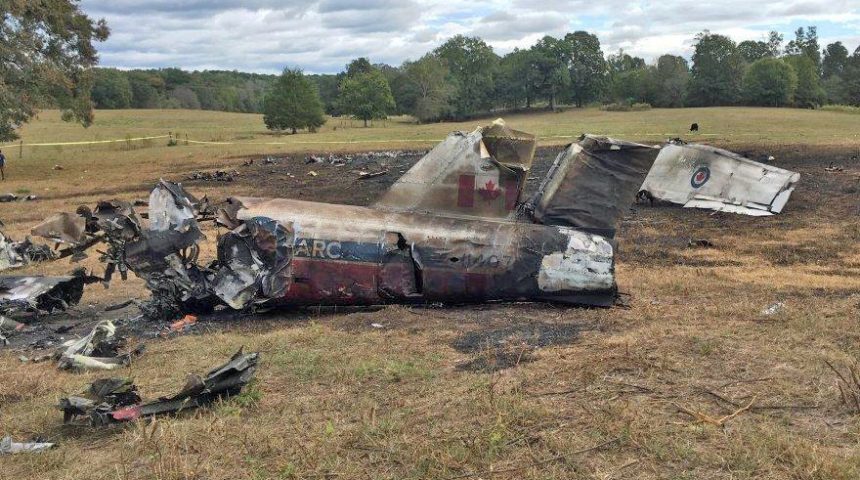Official Report Reveals Engine Problems, Issues with Ejection System.
The official finding of the Canadian Department of National Defense’s Airworthiness Investigative Authority has revealed that the October 13, 2019 crash of a Canadian Forces CT-114 Tutor aircraft belonging to the Snowbirds Demonstration Team was caused by a “fuel delivery system failure”. The report went on to reveal malfunctions in the crew ejection and parachute deployment system.
The aircraft crashed outside Hampton, Georgia, in the United States, on its way to a flight demonstration at Atlanta Motor Speedway as part of the Atlanta Air Show. The single crewmember on board the aircraft ejected, but experienced anomalies in the ejection sequence.
A story published in Skies Magazine on June 29, 2020, said that the pilot’s escape sequence following ejection was compromised when, “…one or more parachute pack retaining cones having been released prior to the activation of the MK10B Automatic Opening Device. Entanglement of the suspension lines with parts of the ejection seat immediately followed ultimately disrupting the proper opening of the parachute canopy. Inspection of all related Tutor Aviation Life Support Equipment was subsequently carried out to ensure fleet airworthiness.”
The pilot had rolled the CT-114 inverted for a routine check of flight characteristics and then rolled back to level flight while moving his throttle forward to apply full thrust to rejoin the other aircraft in the Snowbird formation. The pilot almost immediately experienced a loss of engine thrust to the aircraft’s single General Electric J85/Orenda J85-CAN-40 turbojet engine. Because the aircraft was at low altitude, there was limited time to attempt restarts and the pilot ejected.
The report published on the Royal Canadian Air Force web page says, “The precise location of the failure could not be identified with confidence, though given the evidence of pre-existing damage to the engine oil cooler fuel inlet port, the analysis suggests a potential fuel leak at that location.” It went on to state that, “The aircraft was destroyed upon impact and the pilot received minor injuries as a result of the ejection sequence.”

(Photo: Canadian Forces)
A notation on the Royal Canadian Air Force web page mentions that, “The Tutors flown by the Snowbirds are slightly modified for show features and enhanced performance during low-level aerobatic flying.”
As a result of the official accident investigation findings, the report recommended that, “An inspection be carried out on CT114 engines to identify any damaged oil coolers that may be at risk of leaking at the fuel ports. In addition, the investigation recommends establishing a controlled verification process on the maintenance activities involving fuel transfer tubes in an effort to identify the cause of the damage to the oil cooler ports. Further recommended measures include improving the fitment of the fuel tubes and consolidating and improving on the maintenance instructions that involve the oil cooler and its components.”
The October 13, 2019 crash preceded another Snowbird crash earlier this year, on Sunday, May 17, 2020. Snowbird public affairs officer Capt. Jennifer Casey died in this latest May, 2020 accident after ejecting from a CT-114 Tutor. No official accident report has been issued in this latest fatal accident although preliminary reports have mentioned bird strike as a possible contributing factor to the crash.









